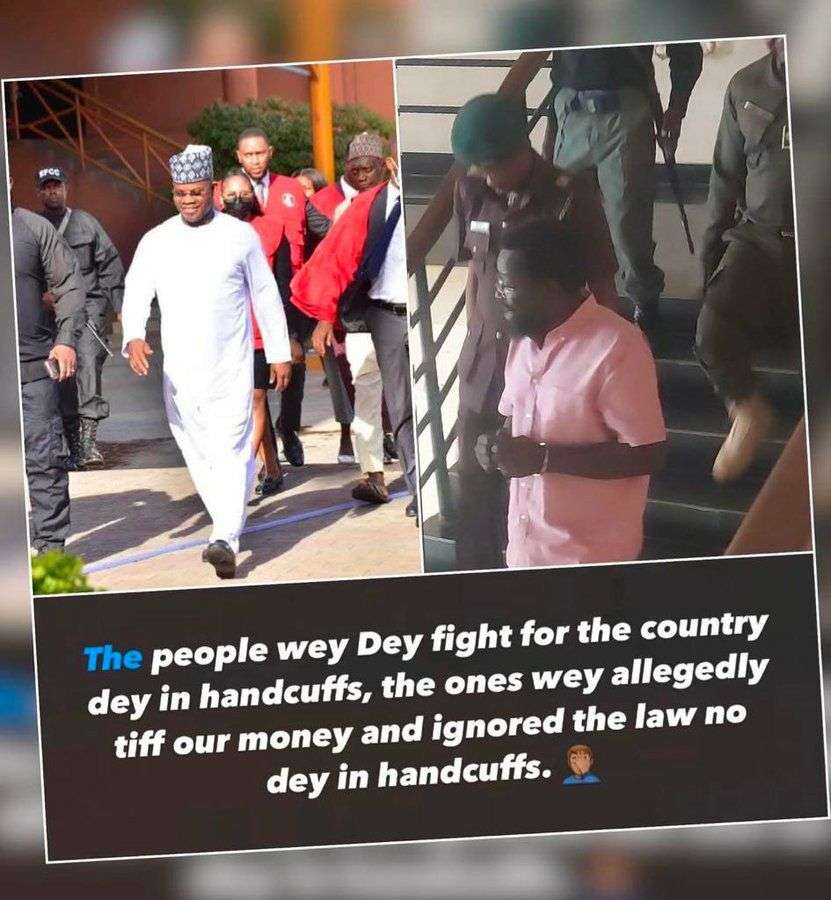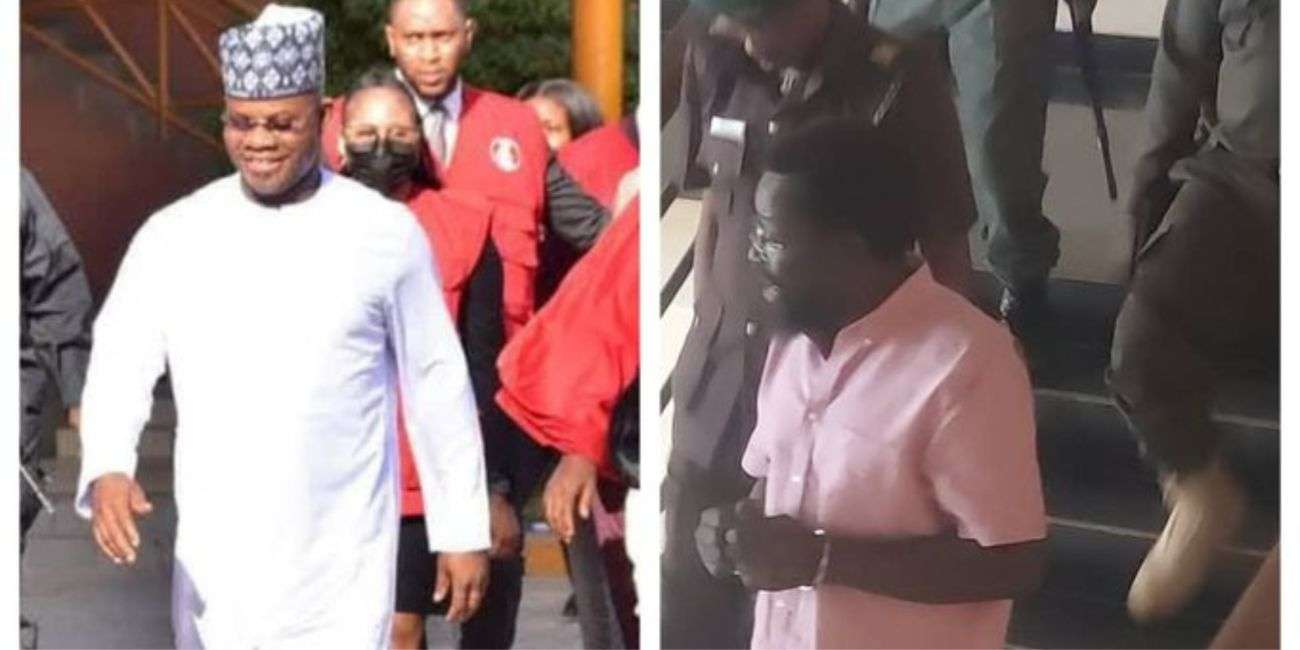
uman rights lawyer and former Chairman of the National Human Rights Commission (NHRC), Prof. Chidi Odinkalu, has condemned the Nigerian Correctional Service (NCoS) for handcuffing fellow lawyer Dele Farotimi during his arraignment in Ado-Ekiti over defamation charges.
Odinkalu contrasted this treatment with the “honourable escort” given to Yahaya Bello, former Governor of Kogi State, by the Economic and Financial Crimes Commission (EFCC), despite facing allegations of misappropriating over N100 billion in public funds.
Farotimi appeared in court on Monday, handcuffed, following charges brought against him by Afe Babalola (SAN) under the Cybercrimes (Prohibition, Prevention, Etc.) Act, 2015. This sparked widespread criticism online, with many Nigerians questioning the selective justice system.

On his X social media account, Odinkalu wrote:
> “They took @DeleFarotimi, who has never touched a kobo of Nigeria’s money, and put him in handcuffs less than a fortnight after @OfficialGYBKogi swagged into the EFCC offices before showing up in court as a superstar. Dele set these guys up, and they’re falling for it.”
Many social media users and human rights activists decried the unequal application of justice, highlighting the stark contrast in how political figures accused of corruption are treated versus ordinary citizens or advocates for free speech.
One user, @afrotrax, remarked:
> “In Nigeria, criminals often roam freely, while the law seems designed to oppress those without power or connections to authority. Dele Farotimi exposed this decay, and their response only validates his critique.”
Another user, @egbelowo, added:
> “The selective enforcement of justice in Nigeria demonstrates the erosion of fairness in our system. It’s a sad reflection of how power protects the corrupt while silencing dissenting voices.”
The incident has reignited debates on the perceived impunity of political elites and the oppressive use of legal mechanisms against critics and activists.






